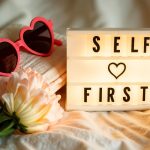In today’s highly competitive job market, a personal brand can be the deciding factor between landing an interview or getting lost in the crowd. It’s no longer just about submitting a resume and hoping for the best. Your personal brand is how you present yourself to potential employers, how you differentiate yourself from others, and how you communicate your unique skills and value. Building a personal brand that catches a recruiter’s eye requires careful strategy, consistency, and an understanding of the market you’re targeting.
In this article, we’ll explore the key steps involved in building a personal brand that attracts recruiters, how to position yourself for success, and why certain tools—such as cover letters—play an important role in getting noticed.
Why Personal Branding Matters
Before diving into the specifics of how to build a personal brand, it’s essential to understand why personal branding is so important, especially in a world that is becoming increasingly digital. Employers and recruiters are no longer just looking at your qualifications or the skills listed on your resume. They’re also interested in how you present yourself online, the reputation you’ve built, and the story you’ve told about your professional journey.
Personal branding is the process of intentionally positioning yourself in the eyes of potential employers, clients, or partners. It allows you to:
- Showcase your expertise and skills
- Communicate your unique value proposition
- Stand out in a crowded job market
- Build trust and credibility
- Make lasting impressions
The truth is, if your personal brand doesn’t reflect your strengths, values, and personality, it will be much harder to make an impact in today’s competitive landscape. In short, personal branding is the new currency in the job market, and it’s vital to develop and manage it.
Creating a Compelling Resume and Cover Letter
Once you’ve established your personal brand and online presence, it’s time to create a resume and cover letter that align with your brand. While resumes are essential, cover letters play an equally important role in introducing yourself to potential employers. A cover letter provides an opportunity to explain why you’re a great fit for a specific position and give recruiters a deeper understanding of your personality and motivations.
Many candidates overlook the importance of a well-crafted cover letter, thinking of it as an afterthought. However, this is your chance to tell a story—why you’re excited about the role and how your experiences make you the ideal candidate. A personalized cover letter is your opportunity to stand out and reinforce your personal brand.
For example, if you’re applying for a position that emphasizes leadership and problem-solving, your cover letter should highlight instances where you’ve demonstrated those qualities. You want the hiring manager to get a sense of your personality and work ethic beyond your resume.
To make the process easier, tools like MyPerfectResume’s cover letter generator can help you create a professional and tailored cover letter that aligns with your brand and the job you’re applying for. Using such tools can help streamline the application process while ensuring your cover letter maintains a personal touch and fits the needs of the position.
Identifying Your Core Strengths
The foundation of any strong personal brand begins with a clear understanding of your strengths and what makes you unique. Are you a problem-solver? A creative thinker? A natural leader? Identifying and defining your strengths will give you the tools to shape the narrative around your brand.
Start by taking inventory of your skills, experiences, and accomplishments. Think about how you’ve contributed to your previous roles, how you’ve made an impact, and what sets you apart from others in your field. From there, you can begin positioning yourself as a valuable asset.
Consider these questions to help guide your reflection:
- What accomplishments am I most proud of in my career?
- What do colleagues, managers, or mentors consistently praise me for?
- What skills have I developed over the years that give me an edge in the industry?
- What makes me different from others in my field?
Once you’ve identified your core strengths, weave them into your personal brand story. Make sure that every aspect of your personal brand, from your resume to your LinkedIn profile to your personal website, reflects these strengths.
Crafting Your Online Presence
In the digital age, a strong online presence is non-negotiable. Recruiters and hiring managers often search for candidates online to learn more about them beyond their resume. Having a well-crafted online presence can significantly enhance your chances of getting noticed.
Start by optimizing your LinkedIn profile. Ensure your profile picture is professional and approachable, your headline clearly communicates your expertise, and your summary highlights your strengths and value proposition. The summary section is an excellent place to tell your story, using a tone that aligns with your professional identity.
Beyond LinkedIn, it’s worth considering creating a personal website or portfolio, especially if you’re in a creative or tech-driven field. A personal website allows you to showcase your work, share your achievements, and offer a more in-depth view of your capabilities.
Be sure to maintain consistency across all platforms. Whether someone is viewing your LinkedIn profile, personal website, or Twitter account, they should immediately understand what you do, who you are, and what makes you valuable. This consistency is essential for reinforcing your brand and building trust.
Networking: Building Relationships That Matter
Networking remains one of the most effective ways to build your personal brand and gain exposure to opportunities. It’s not just about knowing the right people—it’s about creating meaningful relationships that can help you advance in your career.
Attending industry events, engaging with people on social media, and reaching out to potential mentors are all ways to expand your network. However, building relationships is a long-term process that requires time and effort. Be genuine in your interactions, offer value to others, and don’t expect immediate returns.
Remember, recruiters often reach out to candidates through connections or referrals, so having a network of professionals who can vouch for your abilities can go a long way in getting noticed.
Showcasing Your Personal Brand Through Content Creation
One of the most effective ways to showcase your personal brand is by creating and sharing valuable content. This is especially true in industries like marketing, media, and technology, where thought leadership can set you apart.
Start by sharing articles, insights, or case studies related to your area of expertise. This can be done through a blog, social media posts, or even guest articles for industry publications. By consistently contributing valuable content, you can position yourself as an expert in your field, increase your visibility, and attract the attention of recruiters and employers.
Content creation also allows you to engage with your audience, network with industry peers, and demonstrate your knowledge and skills. It’s one of the best ways to build credibility and establish yourself as a go-to resource in your industry.
Conclusion: Consistency is Key
Building a personal brand that resonates with recruiters takes time and dedication. It’s not something you can do overnight, but with consistent effort, you can craft a brand that reflects your strengths, expertise, and unique value proposition. From defining your core strengths to crafting a compelling resume and online presence, every step plays a vital role in getting noticed.
Lynn Martelli is an editor at Readability. She received her MFA in Creative Writing from Antioch University and has worked as an editor for over 10 years. Lynn has edited a wide variety of books, including fiction, non-fiction, memoirs, and more. In her free time, Lynn enjoys reading, writing, and spending time with her family and friends.















